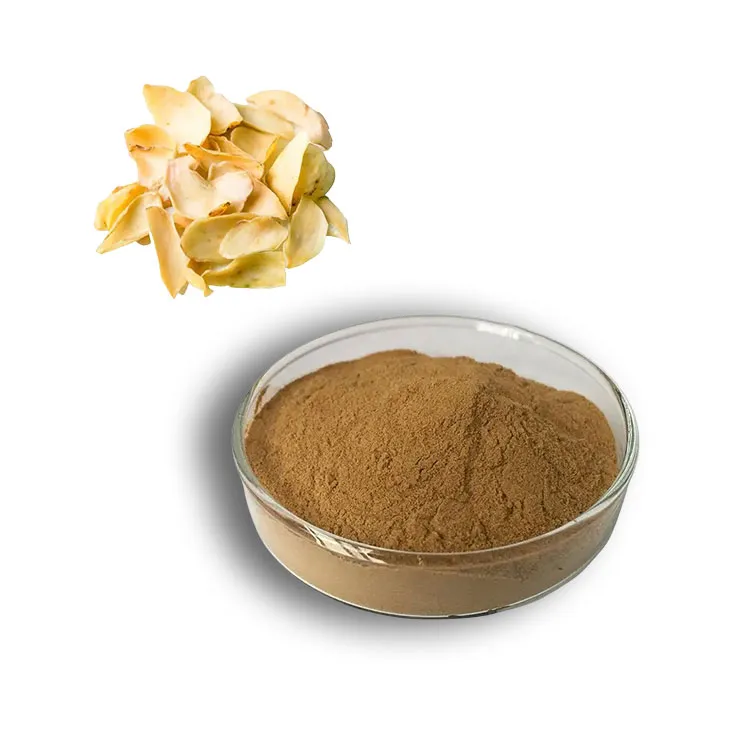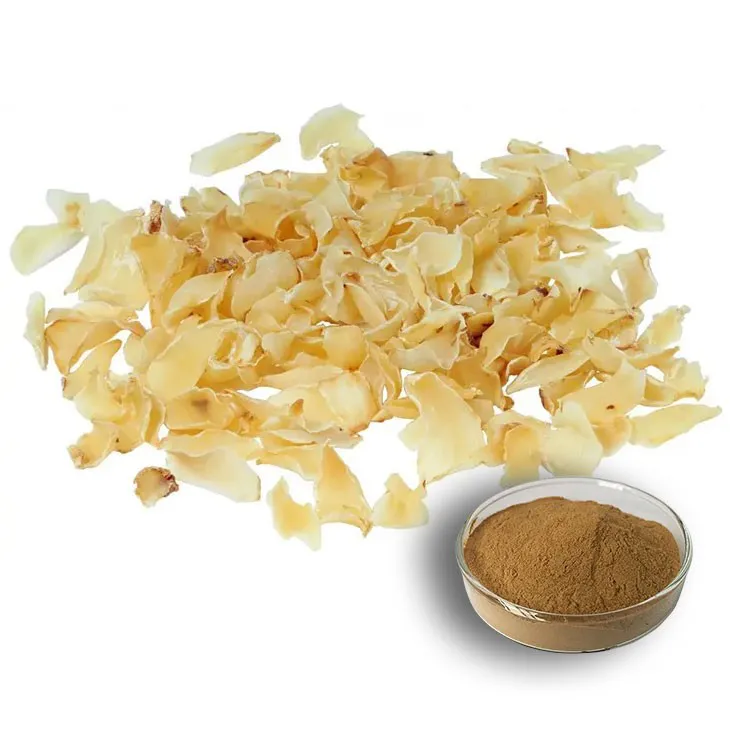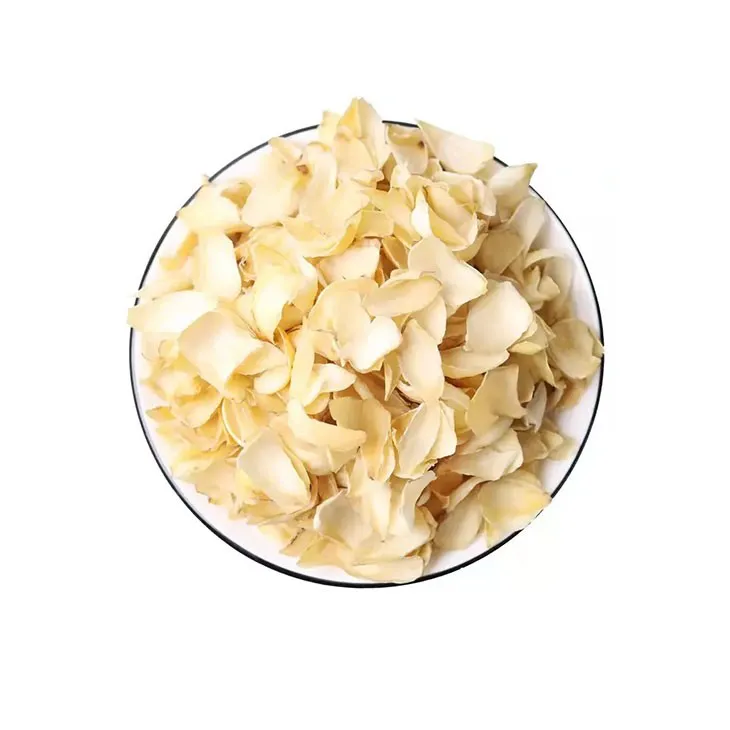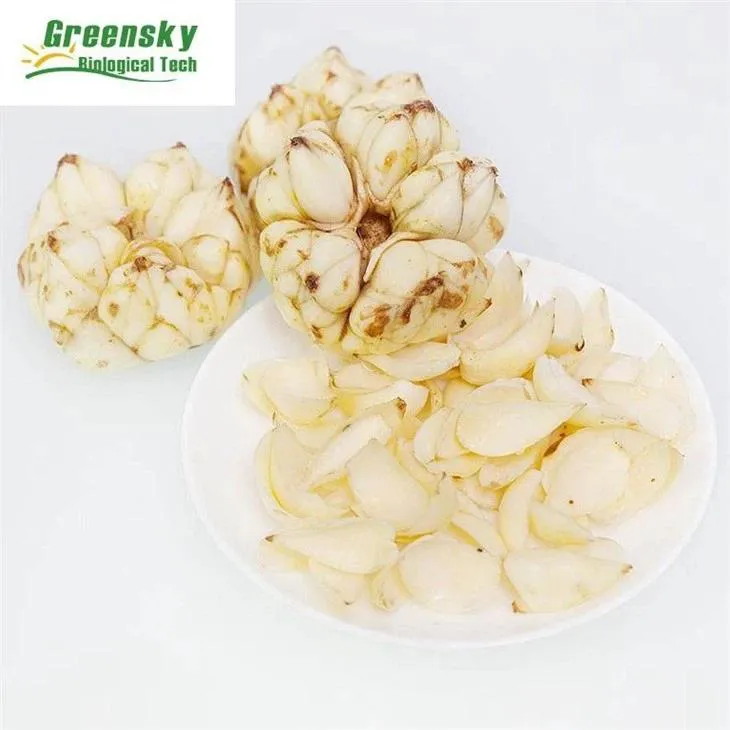- 0086-571-85302990
- sales@greenskybio.com
Entering the lily extract industry? This is why you need a reliable supplier.
2024-12-16

1. Introduction
The Lily extract industry has been gradually emerging as an area of significant interest in recent years. With the increasing demand for natural products in various sectors such as pharmaceuticals, cosmetics, and food supplements, Lily extracts have gained a certain market share. However, for those who are planning to enter this industry, one crucial factor that cannot be overlooked is the choice of a reliable supplier. A reliable supplier is not just a provider of raw materials but also a strategic partner that can significantly impact the success of a business in this industry.

2. The Importance of a Reliable Supplier in Regulatory Compliance
2.1 Understanding the Regulatory Landscape
The Lily extract industry is heavily regulated. There are various national and international regulations that govern the production, quality control, and marketing of lily extracts. For example, in the pharmaceutical field, strict regulations ensure that the extracts are pure, safe, and effective. In the food supplement and cosmetic industries as well, there are specific requirements regarding ingredient safety, labeling, and manufacturing processes.
2.2 How a Reliable Supplier Ensures Compliance
A reliable supplier plays a vital role in ensuring regulatory compliance. They have in - depth knowledge of the relevant regulations and keep up - to - date with any changes. For instance, they will ensure that the lily extracts they supply meet the standards for heavy metal content, pesticide residues, and microbial limits.
They also have proper quality control systems in place. This includes testing the lily extracts at different stages of production. For example, raw materials are thoroughly tested before extraction, and the final extract is again tested to ensure it meets all the required specifications. By doing so, they can provide documentation and certificates of analysis that are often required by regulatory authorities when businesses use the lily extracts in their products.

3. Customization Offered by a Reliable Supplier
3.1 Diverse Needs in the Industry
Different businesses in the lily extract - using sectors have a wide range of needs. In the pharmaceutical industry, some companies may require lily extracts with a specific concentration of active ingredients for the development of new drugs. For example, if a pharmaceutical firm is researching a treatment for a particular respiratory disease, they may need lily extracts with a high concentration of certain bioactive compounds that are known to have beneficial effects on the respiratory system.
In the cosmetics industry, the requirements can be very different. Here, companies may be interested in lily extracts for their skin - moisturizing or anti - aging properties. They may need the extract to be formulated in a certain way, such as in a water - soluble or oil - soluble form, depending on the type of cosmetic product they are developing, whether it is a lotion, cream, or serum.
3.2 Tailoring Solutions by the Supplier
A reliable supplier is able to offer customized solutions to meet these diverse needs. They have the technical expertise and equipment to adjust the extraction process according to the specific requirements of their clients. For example, they can modify the solvent used in the extraction process to obtain different compositions of the lily extract.
They can also work on the packaging of the lily extract. If a client in the food supplement industry requires small - sized, single - use packages for their product samples, the supplier can arrange for such packaging. This level of customization helps businesses in the lily extract industry to better target their own customers and develop more competitive products.

4. A Reliable Supplier as a Source of Market Trends
4.1 Staying Abreast of Market Changes
The lily extract market is constantly evolving. New consumer preferences, emerging scientific research on the health benefits of lily extracts, and changes in competitive landscapes all contribute to these market dynamics. A reliable supplier is deeply involved in the market and is thus in a good position to stay informed about these changes.
For example, if there is a growing trend among consumers towards natural and organic products, a reliable supplier will be aware of this. They can then inform their clients, who may be manufacturers in the cosmetics or food supplement industries, about the potential of marketing lily extracts as natural and organic ingredients. This can give these manufacturers a competitive edge in the market.
4.2 Helping New Entrants Adapt
For new entrants into the lily extract industry, understanding market trends can be a daunting task. A reliable supplier can act as a guide in this regard. They can provide insights into which product forms of lily extracts are currently in high demand, such as powder - form extracts for use in dietary supplements or liquid - form extracts for use in certain types of cosmetics.
They can also offer advice on pricing strategies based on market trends. If the market is becoming more competitive and prices are trending downward due to increased supply, the supplier can help new entrants adjust their cost structures and pricing models accordingly. This assistance in aligning with market trends is invaluable for new businesses trying to establish themselves in the lily extract industry.

5. Conclusion
In conclusion, a reliable supplier is truly a cornerstone for success in the lily extract industry. From ensuring regulatory compliance to offering customization and providing insights into market trends, they play multiple essential roles. For any business looking to enter or expand in the lily extract industry, investing time and effort in finding a reliable supplier is a strategic decision that can have a far - reaching impact on the long - term viability and growth of the business.
FAQ:
What are the main regulations in the lily extract industry?
The main regulations in the lily extract industry often include quality control standards for purity, safety regulations regarding contaminants, and labeling requirements. These regulations are in place to ensure the safety and effectiveness of the lily extracts in various applications such as in food, cosmetics, or pharmaceuticals. For example, in the food industry, there are strict limits on the amount of certain substances that can be present in lily extracts to prevent any potential health risks.
How can a reliable supplier ensure regulatory compliance?
A reliable supplier ensures regulatory compliance by having a comprehensive quality management system. This includes strict raw material sourcing, where they only select high - quality lilies. They also conduct regular in - house testing to check for purity, potency, and the absence of contaminants. Additionally, they keep up - to - date with the latest regulatory changes and ensure that their production processes and product documentation meet all the necessary requirements.
What kind of customization can a lily extract supplier offer?
A lily extract supplier can offer customization in terms of extract concentration. For example, some businesses may require a highly concentrated lily extract for use in pharmaceuticals, while others may need a more diluted form for use in cosmetics. Suppliers can also customize the form of the extract, such as providing it in powder, liquid, or capsule form depending on the customer's needs. Moreover, they can customize the packaging to meet specific storage and transportation requirements.
How does a reliable supplier stay informed about market trends?
A reliable supplier stays informed about market trends through various means. They participate in industry trade shows and conferences where they can network with other industry players and learn about the latest technological advancements and consumer demands. They also conduct market research, which may involve analyzing sales data, customer feedback, and competitor activities. Additionally, they may subscribe to industry - specific publications and newsletters to stay updated on the latest trends in the lily extract market.
What are the risks of choosing an unreliable lily extract supplier?
Choosing an unreliable lily extract supplier can pose several risks. Firstly, there is a risk of non - compliance with regulations, which can lead to legal issues for the business using the extracts. Secondly, the quality of the extracts may be inconsistent, affecting the final product's performance. For example, in a cosmetic product, an inconsistent lily extract quality may result in skin irritation or lack of the desired effect. Unreliable suppliers may also have issues with supply chain stability, leading to delays or shortages in raw materials for the business.
Related literature
- Regulatory Standards in the Botanical Extract Industry"
- "The Importance of Customization in Extract - Based Industries"
- "Market Trends in the Lily - Related Product Market"
- ▶ Hesperidin
- ▶ citrus bioflavonoids
- ▶ plant extract
- ▶ lycopene
- ▶ Diosmin
- ▶ Grape seed extract
- ▶ Sea buckthorn Juice Powder
- ▶ Beetroot powder
- ▶ Hops Extract
- ▶ Artichoke Extract
- ▶ Reishi mushroom extract
- ▶ Astaxanthin
- ▶ Green Tea Extract
- ▶ Curcumin Extract
- ▶ Horse Chestnut Extract
- ▶ Other Problems
- ▶ Boswellia Serrata Extract
- ▶ Resveratrol Extract
- ▶ Marigold Extract
- ▶ Grape Leaf Extract
- ▶ blog3
- ▶ blog4
- ▶ blog5
-
Certified Organic Almond Extract Powder Set.
2024-12-16
-
Artichoke Extract
2024-12-16
-
Lemon Balm Extract
2024-12-16
-
Withania Somnifera Extract
2024-12-16
-
Genistein
2024-12-16
-
melatonin extract
2024-12-16
-
Carrageenan Extract Powder
2024-12-16
-
Baicalin
2024-12-16
-
Red Vine Extract
2024-12-16
-
Clove Powder
2024-12-16
-
Alfalfa Meal
2024-12-16





















